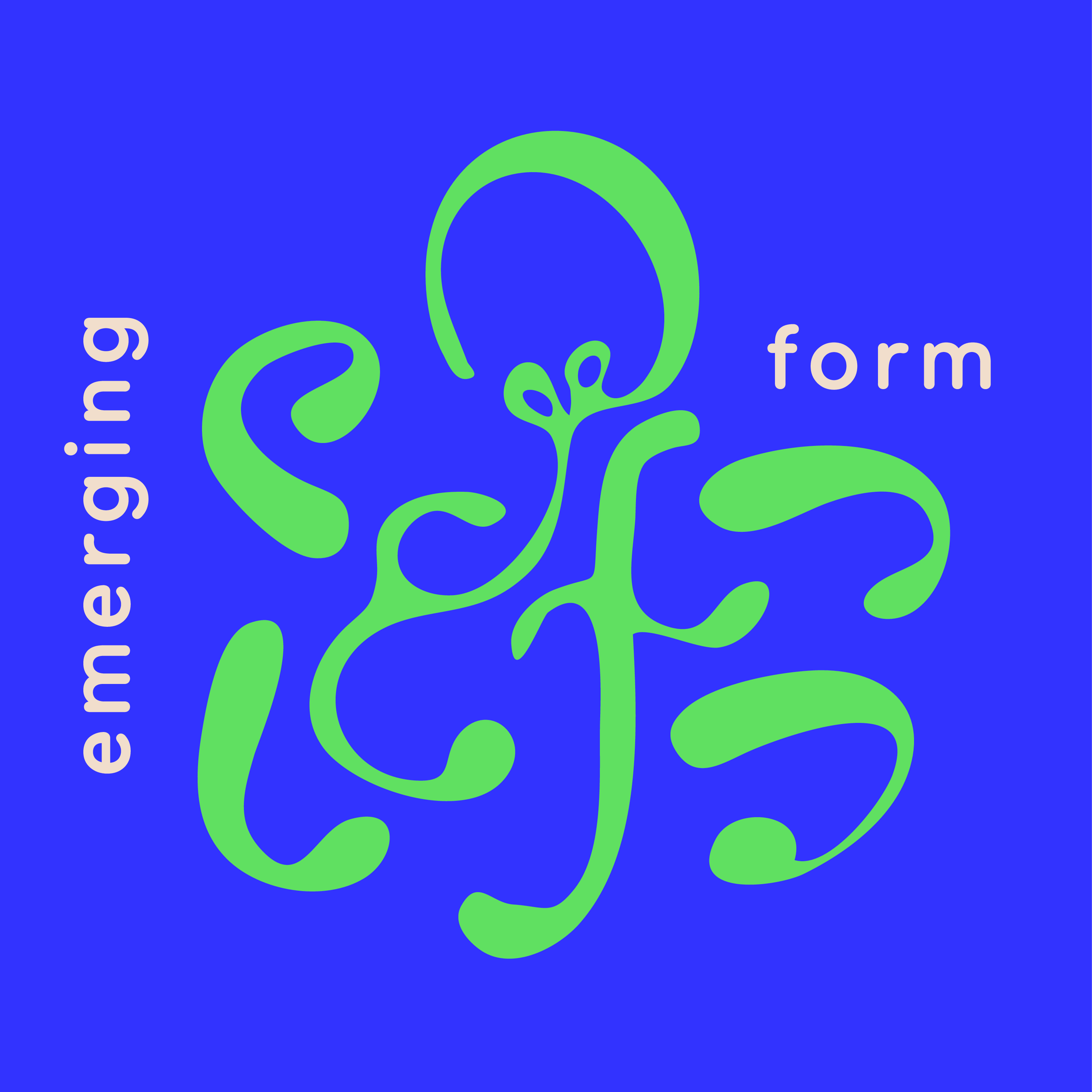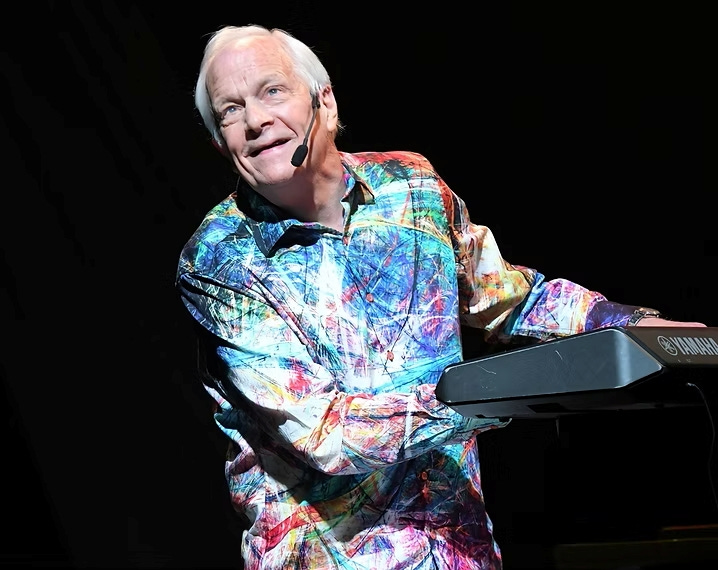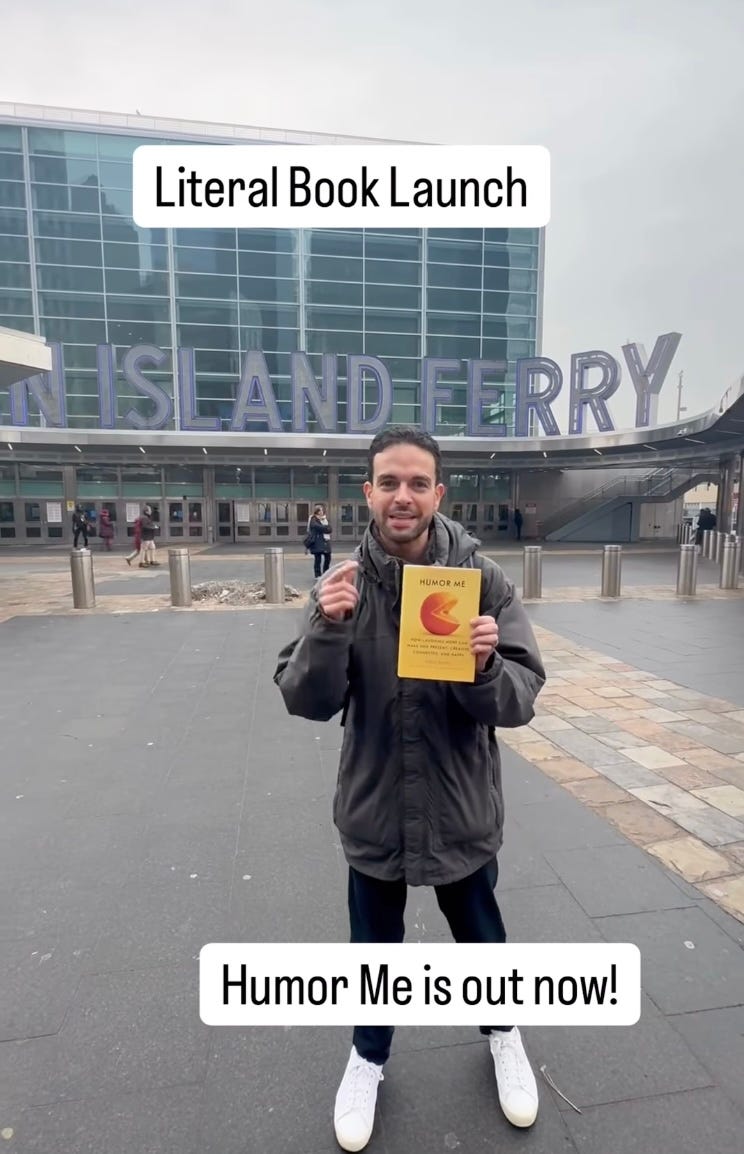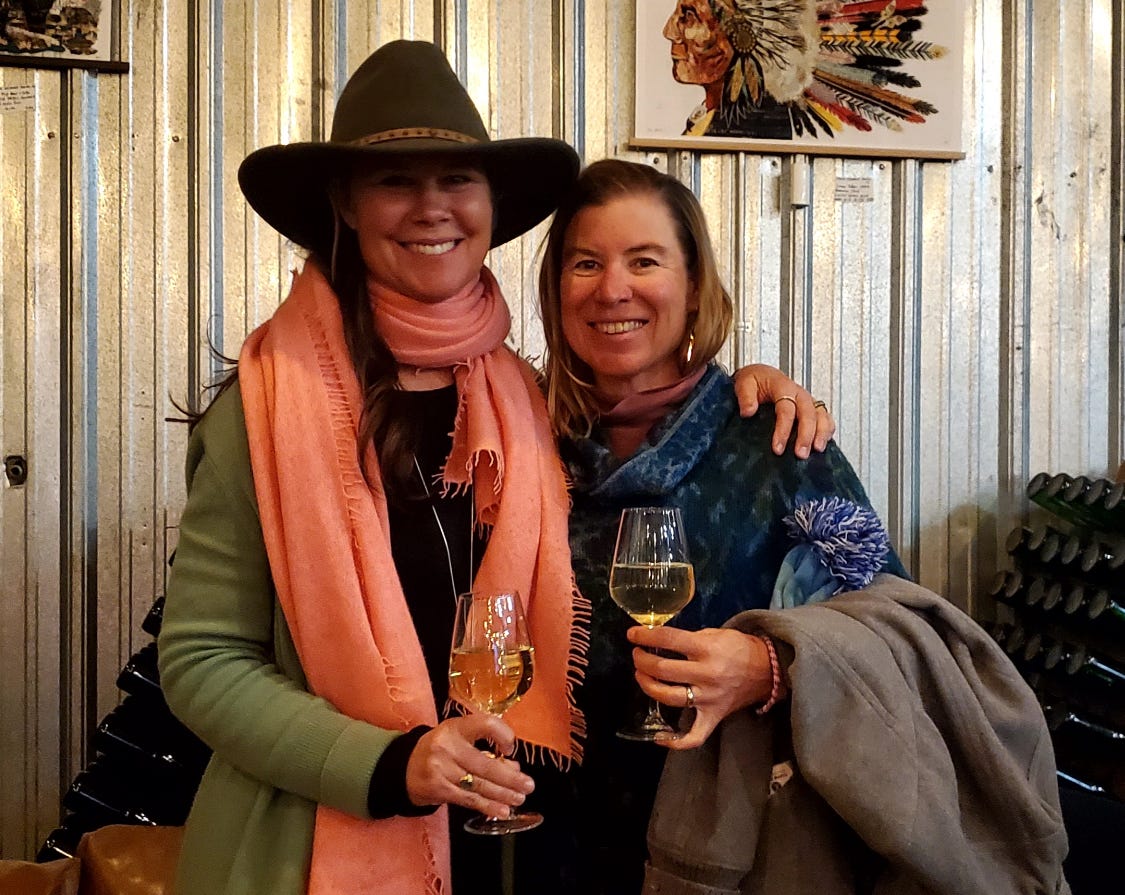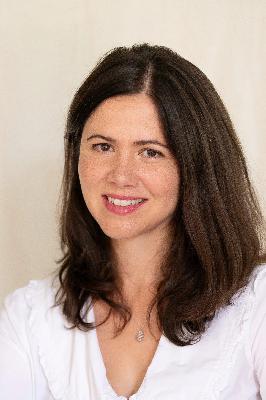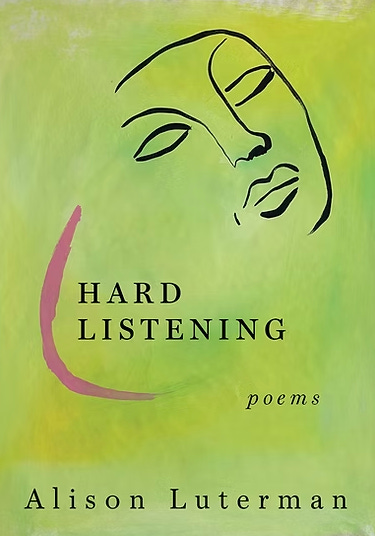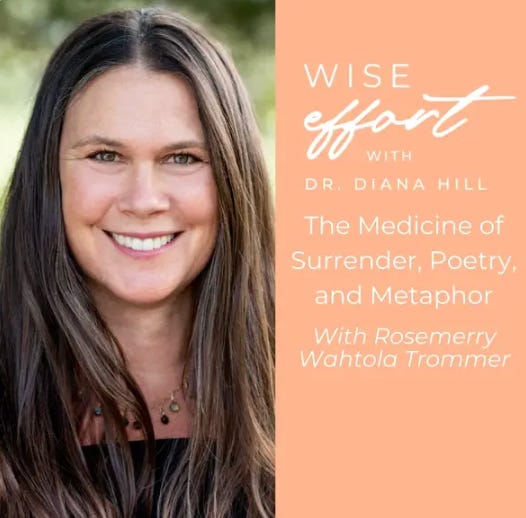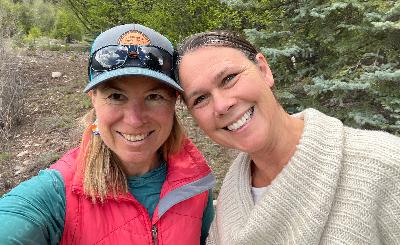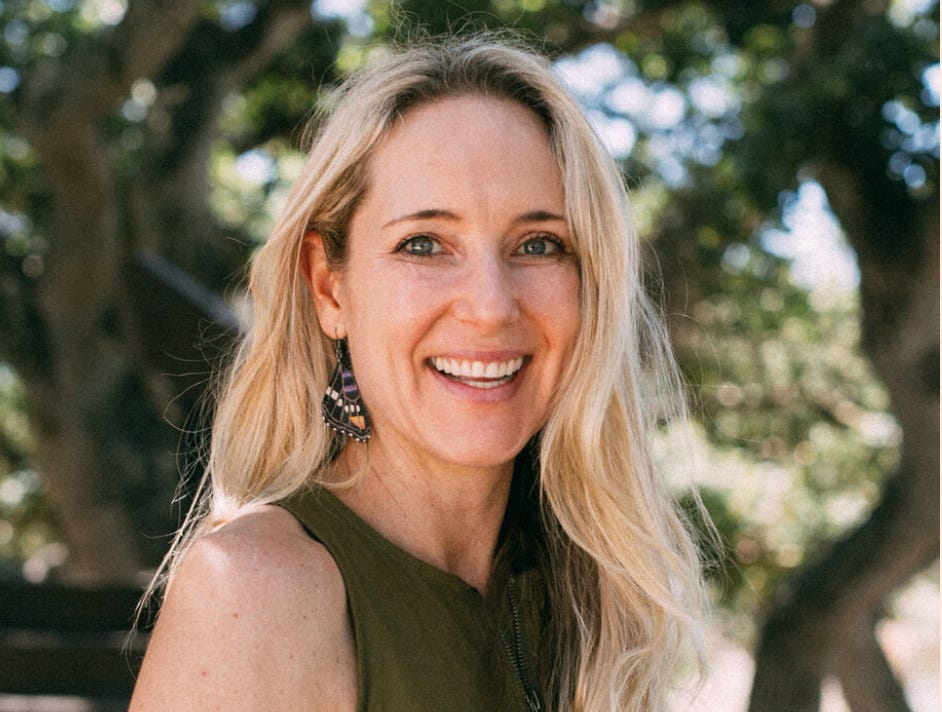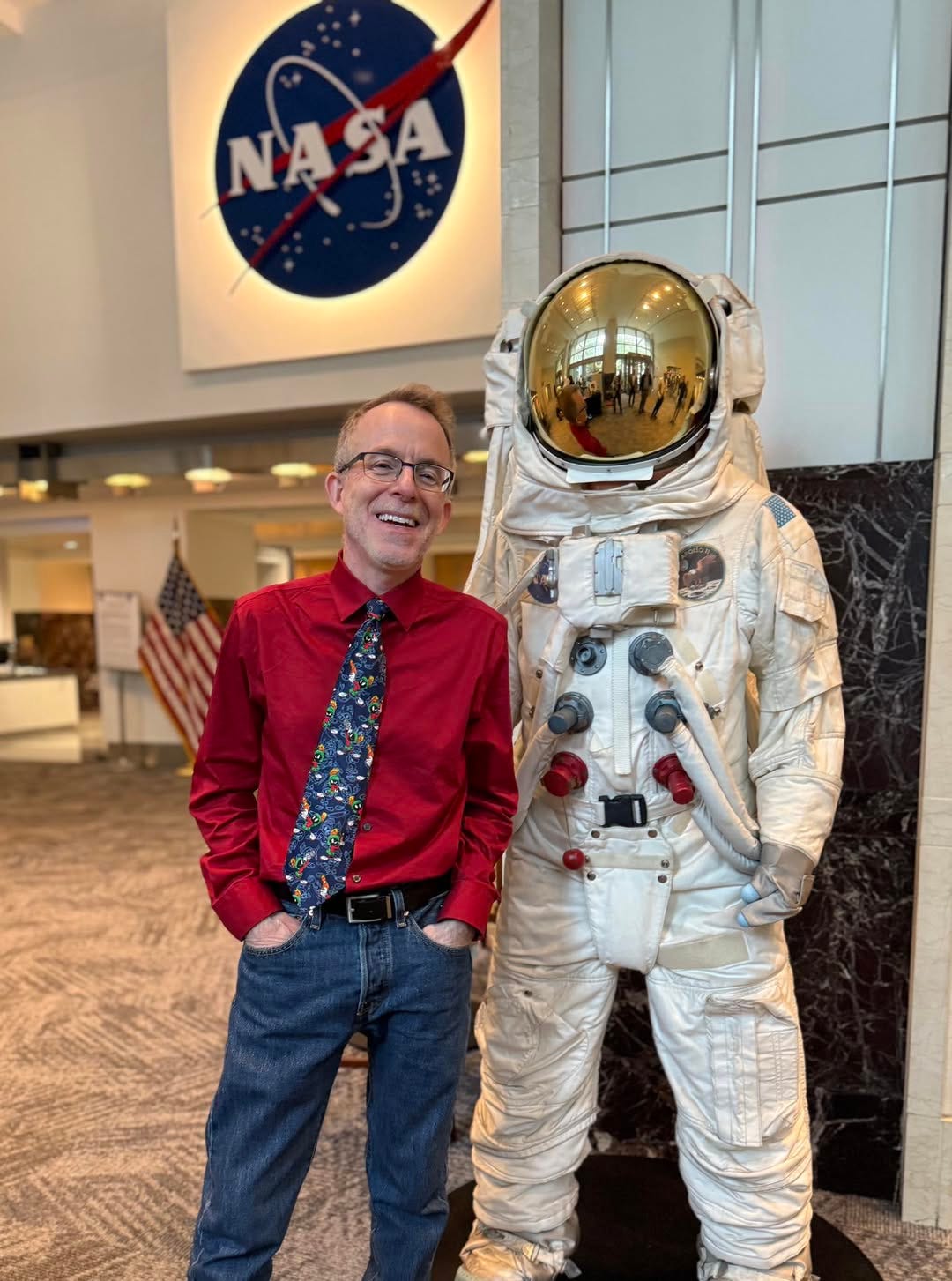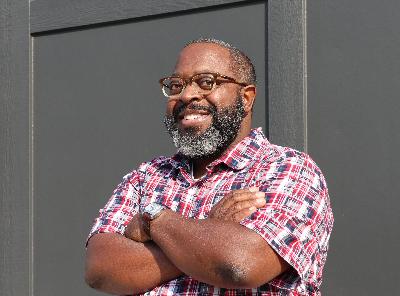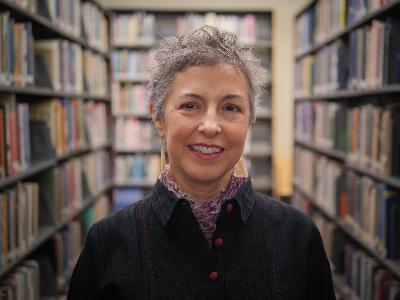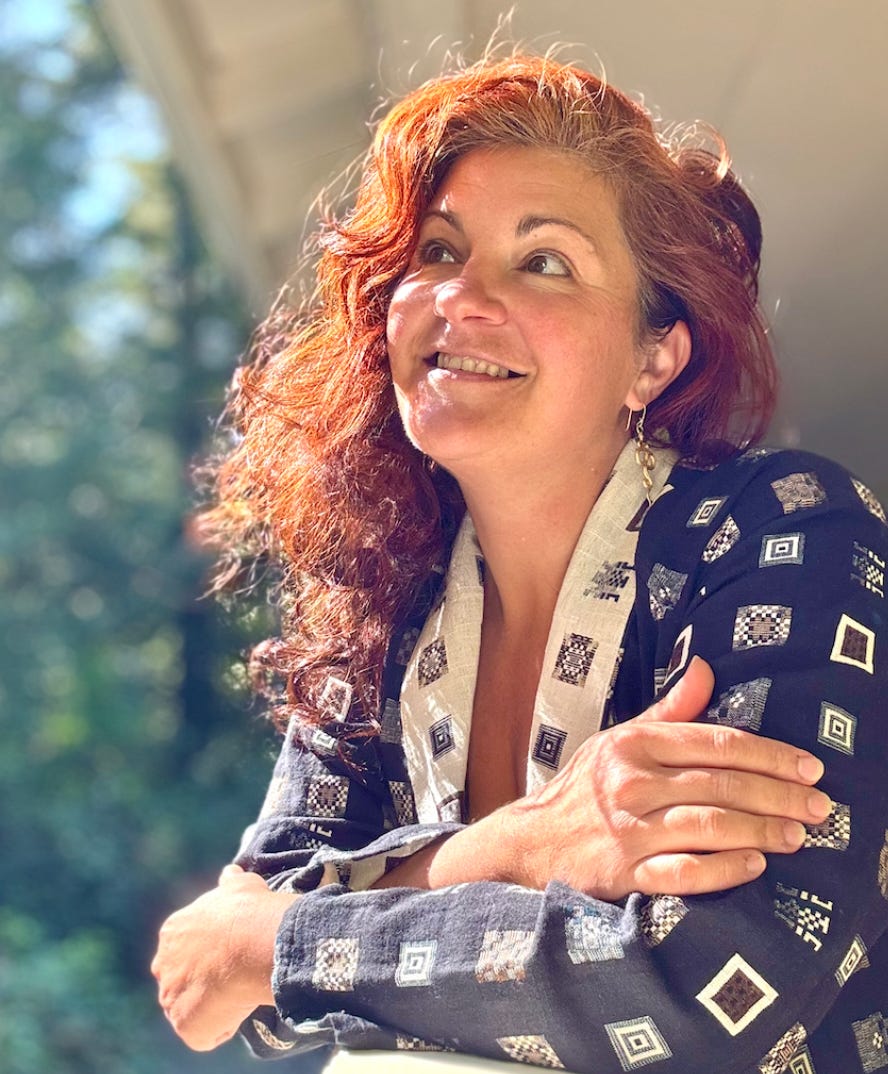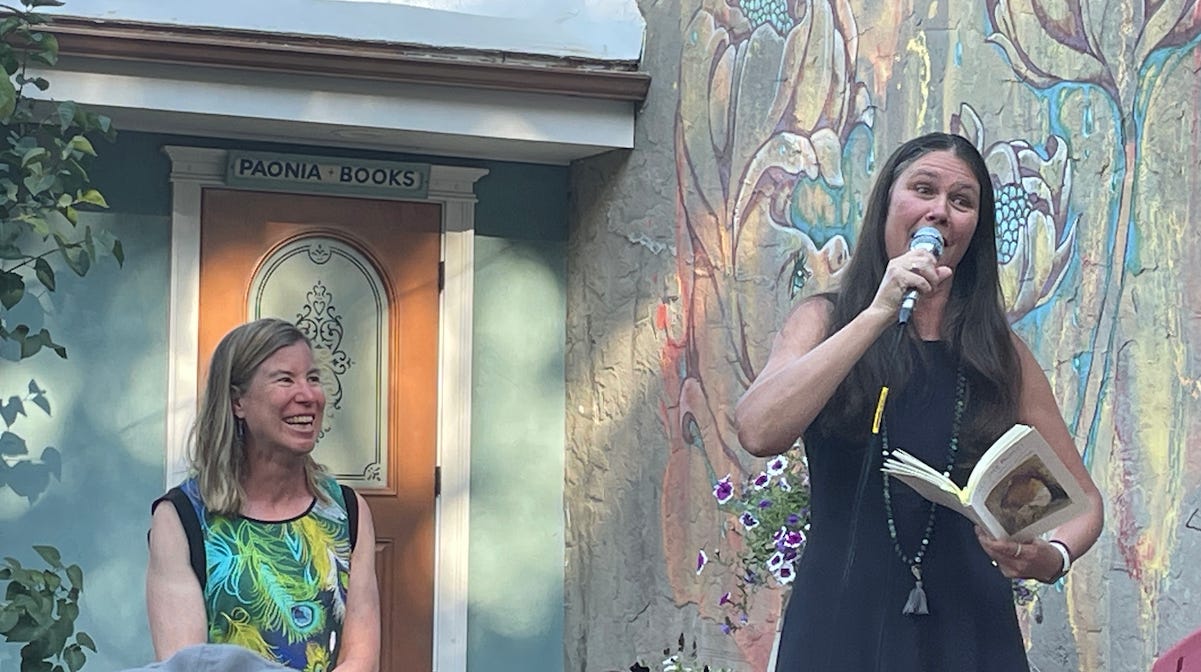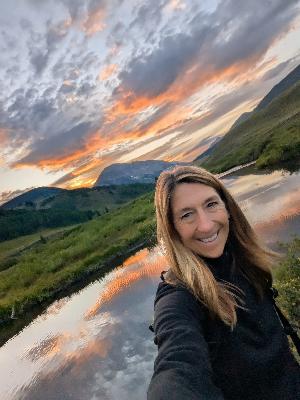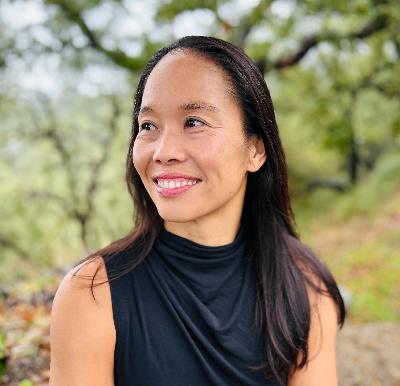Discover Emerging Form
Emerging Form

Emerging Form
Author: Christie Aschwanden
Subscribed: 42Played: 1,368Subscribe
Share
© Christie Aschwanden & Rosemerry Wahtola Trommer
Description
Emerging Form is a podcast about the creative process in which a journalist (Christie Aschwanden) and a poet (Rosemerry Wahtola Trommer) discuss creative conundrums over wine. Each episode concludes with a game of two questions in which a guest joins in to help answer questions about the week's topic. Season one guests include poets, novelists, journalists, a song writer, a circus performer, a sketch artist and a winemaker.
emergingform.substack.com
emergingform.substack.com
193 Episodes
Reverse
“Elation and connection” are two of the side effects of communal singing, and for over four decades, Kate Munger has been writing songs to be sung in tender and difficult moments–at the bedside of the dying, in prisons, and now at gatherings to repair democracy. We talk with Kate about what makes a good communal song, her writing process, how song can transform a negatively charged moment, and what are some of the challenges for communal singing in this moment.Kate Munger has been passionate about community singing since she was 8 years old at Girl Scout Camp and has led community singing now for over 45 years. In 2000 she founded the first of now 200 Threshold Choirs around the world, singing at the bedsides of people who are dying. Now retired from running the Threshold Choir, Kate has returned to her passions of writing songs for medicinal use and singing for people in coma and with folks who are incarcerated she is offering monthly free sessions to learn 60 new songs to sing on the way to, at and from protests to repair democracy, called “Hate Has No Home Here.” An email to Kate (kateamunger@gmail.com) will sign you up. This is a public episode. If you'd like to discuss this with other subscribers or get access to bonus episodes, visit emergingform.substack.com/subscribe
Imagine you’ve just heard an hour-long keynote full of history, statistics, personal story and social justice. And then someone comes to the stage, sits at the piano, and sings back a song that encapsulates the emotional and intellectual content you’ve just heard. That is the improvisational talent of Ken Medema, a keyboardist/pianist, singer, storyteller and performer. In this episode of Emerging Form, we speak with Ken about the importance of a “fence” when it comes to creative play, how to listen for key phrases, how to make people feel truly seen and heard through creative response, plus there’s a spontaneous mid-interview performance!Ken Medema has shared his passion for learning and discovery through storytelling and music and has been writing and performing as a singer and pianist/keyboardist for 52 years in many different venues: churches, conventions, colleges, corporations and more. Though blind from birth, Ken sees and hears with heart and mind, improvising stories from his audience and speakers. Ken lives in the San Francisco Bay area and is celebrating the 50th anniversary of his Tree Song, which premiered at a youth convention in Princeton in 1976. He has written and produced over 30 albums. This is a public episode. If you'd like to discuss this with other subscribers or get access to bonus episodes, visit emergingform.substack.com/subscribe
“I was acutely aware of not feeling part of the club,” says Alia Hanna Habib, now a leading literary agent. “As I started to become an insider, I saw other people feel that same way.” In this episode Habib talks about writing her book, Take It From Me: An Agent’s Guide to Building a Nonfiction Writing Career from Scratch, and offers ideas for where to start writing your book, how having talented friends might both inspire and intimidate you, how to choose a topic, and why she now finds ways–with her book and her work–to open the door for other creatives.Alia Hanna Habib is a Vice President and literary agent at The Gernert Company, where she represents MacArthur Fellows, Pulitzer Prize-winning journalists, National Book Award finalists, and numerous New York Times bestselling authors. Her new book, Take It From Me: An agent’s guide to building a nonfiction writing career from scratch, is a guide to nonfiction writing careers for emerging and established writers. She lives in Brooklyn, NY. This is a public episode. If you'd like to discuss this with other subscribers or get access to bonus episodes, visit emergingform.substack.com/subscribe
“The least dangerous humor is to make fun of yourself and your foibles,” says comedian Chris Duffy. How might such a sense of humor help jumpstart and nourish your creative life? In this episode of Emerging Form, we talk with Chris about* what is a sense humor and why is it essential for our creative lives* why noticing specific details is an essential to both creativity and our humanity* the joy in heckling ourselves* how the feedback loop of a stage differs from the feedback loop of a reading audience* ways to laugh at yourself and why this is so importantBoth silly and sincere, this is an episode for linking your sense of humor to the rest of your life in a generous, creative way.Chris Duffy is an award-winning comedian, television writer, and radio/podcast host. Chris currently hosts the hit podcast How to Be a Better Human. He wrote for both seasons of Wyatt Cenac’s Problem Areas on HBO, executive produced by John Oliver. His new book Humor Me: How Laughing More Can Make You Present, Creative, Connected, and Happy is out now.Image: Chris launching his book on the Staten Island Ferry on his book launch day. He’s the real deal, folks. This is a public episode. If you'd like to discuss this with other subscribers or get access to bonus episodes, visit emergingform.substack.com/subscribe
After our end of the year episode, in which we talked about the words we had chosen as our theme for the year, we asked a bunch of Emerging Form guests to tell us their word. We were overwhemed by the response! We had so many great submissions that we decided to make them into a stand alone episode. Here are the contributors, in order of appearance. Andrea BarrettBonnie TsuiMaria KelsonAlison LutermanAlex HutchinsonAdam BeckerBil LeppChris DuffyDavid BaronDavid EpsteinDiana HillKristin Pedemonti Lisa GardinierMichael Kleber DiggsSherry Richert BelulStarre VartanTodd MitchellKyra Kopestonsky with us at KOTO radio recording the theme music for Emerging Form. We’re so grateful that we will continue to have a little piece of her on every show. Litby Rosemerryfor KyraTonight when I light the candleand say your name, I noticehow you have lit me—with your words, your voice,the way you clap your handsat the smallest of joys.Because you’ve given melight you’ve gathered fromthe darkest of places,I will never be the same.Again and again, you have lit meas if my life is beeswaxand love is the wick andyour courageous life is flame. This is a public episode. If you'd like to discuss this with other subscribers or get access to bonus episodes, visit emergingform.substack.com/subscribe
It’s the sixth annual epiphany episode! Join Rosemerry and Christie as we look back on the highs and lows of their own creative practices in 2025, and reflect on the intentions we set a year ago. Did Christie “Create the Space?” How did Rosemerry explore “Spaciousness?” What did we learn about failure? About collaboration? Join us for laughter and teasing and good old-fashioned vulnerability. This is a public episode. If you'd like to discuss this with other subscribers or get access to bonus episodes, visit emergingform.substack.com/subscribe
“I had to reassess how I approached creativity and life in general,” says author Todd Mitchell. In this episode of Emerging Form, we speak with the award-winning author about how to re-envision our creative practice, how to re-think our definition of success and what makes a creative practice sustainable. We also talk about why jelly beans might be an essential item in any creative’s toolbox, habits that help us return to the page another day, and practices that help us identify where our ego is getting in the way.Todd Mitchell is the American Fiction Award-winning author of several novels for young readers and adults including The Namer of Spirits (Owl Hollow Press), The Last Panther (Penguin Random House), The Traitor King (Scholastic), Backwards (Candlewick), and The Secret to Lying (Candlewick). In addition to writing books and comics, Todd works with artists, teachers, and writers on ways to enhance creativity. His newest non-fiction book, Breakthrough: How to Overcome Doubt, Fear, and Resistance to Be Your Ultimate Creative Self, is the culmination of decades of research into creative practices. Currently, Todd directs the Beginning Creative Writing Teaching Program at Colorado State University. You can visit him (and learn about his squirrel obsession) at www.ToddMitchellBooks.com. This is a public episode. If you'd like to discuss this with other subscribers or get access to bonus episodes, visit emergingform.substack.com/subscribe
“There are enough talented people out there,” says Julia Belluz, “but only collaborate with people you really like.” This was the advice the writer followed when deciding to work with scientist Kevin Hall on their new book, Food Intelligence. The resulting book weaves his narrative and evolution as a scientist with her narrative as a patient and journalist. In this episode, we explore what makes a successful collaboration, how to define roles—and why to do this right up front, the importance of trust, and how to communicate throughout the process.Julia Belluz is a Paris-based journalist and co-author of the new book, Food Intelligence. A contributing opinion writer to the New York Times, she has reported extensively on medicine, nutrition, and global public health from Canada, the US, and Europe. This is a public episode. If you'd like to discuss this with other subscribers or get access to bonus episodes, visit emergingform.substack.com/subscribe
“I’m a striver,” poet Alison Luterman, “still striving to grow.” In this interview with the beloved poet, we follow up on our conversation from episode 64 “It’s Okay to Not Feel Talented, Keep Going Anyway,Alison tells us about her ongoing singing lessons and how they have changed the way she listens, not only to music but to conversations and the rest of the world. This practice is at the heart of her new collection, Hard Listening. Not only does she read from the book, but she shares about what she learned about creativity from studying the lives of her singing heroes, the interweaving of politics and creative practice, and how to explore and share pleasure in the midst of difficult times.Alison Luterman’s four books of poems include The Largest Possible Life; See How We Almost Fly; Desire Zoo; and In the Time of Great Fires. She has published poems in The New York Times Magazine, The Sun Magazine, Prairie Schooner, Nimrod, and many other journals and anthologies. She lives in Oakland, California, where she walks her neighborhood daily, stopping at all the yards where there’s a sweet-smelling bush or tree. This is a public episode. If you'd like to discuss this with other subscribers or get access to bonus episodes, visit emergingform.substack.com/subscribe
Can poetry be a form of medicine? In this week’s bonus episode, we share a guest podcast, the Wise Effort Show, hosted by our recent guest Dr. Diana Hill. In the bonus episode she did with Emerging Form, Diana shared a poem that was inspired by this interview with Rosemerry Wahtola Trommer. They discuss the role of poetry in emotional processing, grief, love, and connection. Diana shares how Rosemerry’s poetry has personally influenced her life and work. Rosemerry reads some of her poems, discusses her daily practice of writing a poem everyday, and offers insights into how poetry can help us be present with our pain and transform it. Drawing from her own experiences, especially the tragic loss of her son, Rosemerry explains how metaphors and a daily writing habit can serve as healing practices.Join this insightful conversation to discover the therapeutic potential of poetry and how it can guide us through life’s most challenging moments.In This Episode, We Explore:* The Power of Poetry in Therapy* Rosemerry’s Personal Journey with Poetry* Daily Writing Practice and Its Benefits* Embracing Imperfection and Truth* Sharing Personal Grief Publicly This is a public episode. If you'd like to discuss this with other subscribers or get access to bonus episodes, visit emergingform.substack.com/subscribe
How do we take care of our creative selves? How do we step off the wheel of production and find ourselves in the wide-open moment with room to wonder and wander? In this episode, hosts Rosemerry Wahtola Trommer and Christie Aschwanden have a conversation about where they are at now in their well-filling cycle, the importance of creative self-care and the consequences of not doing so. This is a public episode. If you'd like to discuss this with other subscribers or get access to bonus episodes, visit emergingform.substack.com/subscribe
Everyone has creative genius, says Diana Hill, PhD, and in her new book, Wise Effort: How to Focus Your Genius Energy on What Matters Most, she explores how to best explore and nurture that genius. We speak about how she battled some of her own demons while writing the book–the committee arguing in her head. We talk about wise effort–not trying too hard, and the three main practices that fuel wise effort–getting curious, opening and focusing. It’s a practical, vulnerable, lighthearted episode.Diana Hill, Ph.D. is a clinical psychologist, international trainer, and a leading expert on Acceptance and Commitment Therapy (ACT)—a revolutionary approach to psychology that is changing our understanding of mental health. Drawing from the most current psychological research and contemplative wisdom, Diana bridges science with real-life practices to helppeople grow fulfilling and impactful lives. She is the author of four books including I Know I Should Exercise, But..., The Self-Compassion Daily Journal, ACT Daily Journal, and her latest Wise Effort: How to Focus Your Genius Energy on What Matters Most. She’s the host of the Wise Effort Podcast and her insights have been featured by NPR, Wall Street Journal, Psychology Today, Real Simple, and other national media.Website: www.wiseeffort.compodcast: www.wiseeffortshow.com This is a public episode. If you'd like to discuss this with other subscribers or get access to bonus episodes, visit emergingform.substack.com/subscribe
“The first draft is absolute torture,” says historical nonfiction writer David Baron. And yet, he persists and his newest book, The Martians: The True Story of an Alien Craze that Captured Turn-of-the-Century America has garnered rave reviews from The New York Times, Wall Street Journal, The New Yorker and more. The Christian Science Monitor says, “The Martians is a fascinating tale that’s beautifully told.” We speak with Baron about the joys of research, the agony of writing, the delight in rewriting, how imagination cuts both ways, and how Truman Capote’s work has influenced his own. David Baron is an award-winning journalist, broadcaster, and author of The Beast in the Garden, American Eclipse and his latest book The Martians: The True Story of an Alien Craze that Captured Turn-of-the-Century America. A former science correspondent for NPR, he has also written for the New York Times, Washington Post, Wall Street Journal, Los Angeles Times, Scientific American, and other publications. David recently served as the Baruch S. Blumberg NASA/Library of Congress Chair in Astrobiology, Exploration, and Scientific Innovation. He lives in Boulder, Colorado. This is a public episode. If you'd like to discuss this with other subscribers or get access to bonus episodes, visit emergingform.substack.com/subscribe
In this episode, we talk with Michael about the importance of mentors and how sometimes they transition to colleagues as we find our own footing in our creative work, stepping into our own creative identity. He reads “What Name for This,” from his book Worldly Things, and we use the poem as a launching pad to talk about creative relationships, why we write and how attentiveness to the specific can lead us to questions about the universal, and making art out of the ordinary. And, in thinking about the role of the artist in a difficult time, Michael shares his controversial idea about the role of the artist in “dark times.”Michael Kleber-Diggs (KLEE-burr digs) is a poet, essayist, literary critic, and arts educator. He is the author of My Weight in Water, a memoir about his complicated relationship with lap swimming (forthcoming with Spiegel & Grau, 2026). Michael’s debut poetry collection, Worldly Things, won the Max Ritvo Poetry Prize and was published by Milkweed Editions in 2021. The New York Times Book Review said his poems, “see the whole, allowing daily intimacies against a backdrop of social injustice.”His poems and essays often explore themes of intimacy, community, empathy, and grace, practices he believes are simultaneously distinct and interdependent. Michael is a 2023-2025 Jerome Hill Artist Fellow in Literature, and he teaches creative writing at Augsburg University and through the Minnesota Prison Writing Workshop. Michael is married to Karen Kleber-Diggs, a tropical horticulturist and orchid specialist. Karen and Michael have a daughter, Elinor, who lives in New York City and works as a professional dancer. This is a public episode. If you'd like to discuss this with other subscribers or get access to bonus episodes, visit emergingform.substack.com/subscribe
One day, nationally acclaimed poet Maria Kelson hit “a poetry wall” for no identifiable reason. “It was frustrating,” she says, “because I had devoted myself to poetry. For 15 years, it was my primary focus.” What happened next–she followed an emerging passion, crime fiction. ‘As i was casting about I thought, I want to explore the dark side.” In this episode we talk with Maria about shedding layers of creative identity, finding new community, art as a way to explore and expose issues of social injustice, and the surprising ways poetry informs her new award-winning thriller.Maria Kelson has two collections of poetry (as Maria Melendez) with University of Arizona Press, which were finalists for the PEN Center USA Literary Award and the Colorado Book Award. NOT THE KILLING KIND is her debut novel. If you're a mystery/thriller reader drawn to strong female leads, the scary beauty of the redwood country, moms who push it to the limit, or crime-fighting ESL teachers, she wrote her debut novel NOT THE KILLING KIND for you! It received the inaugural Eleanor Taylor Bland Award for Crime Fiction Writers of Color from Sisters in Crime and just won the WILLA award for best mystery/thriller. She has served as an American Voices arts envoy in Bogotá, Colombia. A Mexican-American educator from California, Maria lives near Yellowstone. She’s writing a new thriller set there. This is a public episode. If you'd like to discuss this with other subscribers or get access to bonus episodes, visit emergingform.substack.com/subscribe
When Starre Varten sat down to write her book The Stronger Sex: What Science Tells Us about the Power of the Female Body, she came to the project with two things: an intellectual thesis and a very personal bodily story. In this episode, we talk with Starre about how both mind and body fueled her creative practice. We also talk about how what began as an article became a book, how to turn toward the part of the book you might rather turn away from, how an outsider’s perspective can help us see our project more clearly and what it really means to be strong.Starre Vartan is a science writer who was raised in a family of creatives and medical professionals. She grew up in New York and now splits her time between the Pacific Northwest and Sydney, Australia. She contributes regularly to Scientific American and National Geographic and has written for CNN, the Washington Post, Slate, and New York magazine, among many others. Her new book, The Stronger Sex: What Science Tells Us about the Power of the Female Body, is a science-backed, myth-busting love letter to the female body—think endurance, immunity, and the kind of strength that doesn’t flex, it lasts.Starre’s Website: https://starrevartan.com/Her Washington Post story why dancing is good for your body and soul. Instagram: https://www.instagram.com/starrevartan/TikTok: https://www.tiktok.com/@thecurioushumana This is a public episode. If you'd like to discuss this with other subscribers or get access to bonus episodes, visit emergingform.substack.com/subscribe
Making something is fun. Promoting it? Not so much… On this episode of Emerging Form, Rosemerry and Christie discuss the what happens when you put something you’ve created out into the world. How do you get it to your intended audience? How do encourage people to find it without feeling like an icky self-promotional nag? We also discuss the pain of realizing that your friends didn’t and won’t read or watch or listen to your new thing, the importance of remembering why you’re doing this, and the 100 day promotion project we tried (inspired by previous Emerging Form guests Chris Duffy and Zach Sherwin) and what it taught us.Rosemerry Wahtola Trommer is a poet, teacher, speaker and writing facilitator. Her daily audio series, The Poetic Path, is on the Ritual app. Her poems have appeared on A Prairie Home Companion, PBS News Hour, O Magazine, American Life in Poetry, and Carnegie Hall stage. Her most recent poetry collections are All the Honey (Samara Press, 2023) and The Unfolding (Wildhouse Publishing, 2024). In January, 2024, she became the first poet laureate for Evermore, helping others explore grief, bereavement, wonder and love through poetry.Christie Aschwanden is author of the New York Times bestseller, Good to Go: What the Athlete in All of Us Can Learn From the Strange Science of Recovery and host and producer of Uncertain, a podcast from Scientific American. She’s the former lead science writer at FiveThirtyEight and was previously a health columnist for The Washington Post. Her work has appeared in dozens of publications, including the New York Times, Wired, Smithsonian, Slate, Popular Science, Discover, Science and Nature. She’s received fellowships from the Santa Fe Institute, the Carter Center and the Pulitzer Center for Crisis Reporting. She lives in Cedaredge.Rosemerry’s new album Risking Love on Bandcamp, Spotify and Youtube This is a public episode. If you'd like to discuss this with other subscribers or get access to bonus episodes, visit emergingform.substack.com/subscribe
“I am just discovering myself as a novelist,” says international bestselling novelist Shelley Read, author of Go as a River. In this conversation, Shelley shares with us how her journey from poet and non-fiction writer shifted into fiction with a single moment of observation and wonder. She shares with us how she crafts scenes, her penchant for playing with language, why she didn’t share with anyone about what she was doing for many years, how a love affair with her main character drove the whole novel, and what she has learned about her own creative process along the way.Shelley Read’s debut novel,Go as a River, is an international bestseller that has sold over a million copies worldwide, been translated into thirty-four languages, and is in development for film with the Mazur Kaplan Company. Winner of the High Plains Book Award for Fiction and the Reading the West Book Award for Debut Fiction, Go as a River is also a Sunday Times bestseller, a Goodreads Choice Award finalist, an Amazon Editors’ Pick Best Debut Fiction, an Indie Next Pick, and a Colorado Public Radio Books We Love selection, among other national and international accolades. Shelley was an award-winning senior lecturer at Western Colorado University for nearly three decades, where she taught writing, literature, environmental studies, and honors. She is a mom, mountaineer, world traveler, and fifth-generation Coloradan who lives with her family in the Elk Mountains of Colorado’s Western Slope.You can meet Shelley in person at the Grand Mesa Writer’s Symposium August 8-10 in Cedaredge. The event features numerous workshops and gatherings, including an open mic. For the keynote, Christie will talk with Shelley, the poet Wendy Videlok (a previous guest on our show) and nonfiction writer Tim Winegard about their work. More info at: https://www.grandmesawriters.org/ This is a public episode. If you'd like to discuss this with other subscribers or get access to bonus episodes, visit emergingform.substack.com/subscribe
“I try to be really open to anything that comes my way,” says bestselling author Bonnie Tsui. Her newest book, On Muscle, isn’t a memoir, but it begins with her recounting her father encouraging her and her brother to “make a muscle.” Tsui appears in many sections of the book interacting with the various characters she introduces. Yet it’s not a book explicitly about her, and if there’s a main character it’s probably human muscle. In this episode we speak with Tsui to find the right balance of personal storytelling, history, science, experts and interesting characters. Plus why poetry is a part of her research and the value of pulling multiple disciplines into her writing.Bonnie Tsui is a longtime contributor to The New York Times and the author of the new book On Muscle: The Stuff That Moves Us and Why It Matters—a vivid, thought-provoking celebration of musculature and one of the most anticipated books of the year; it is currently being translated into six languages. Her bestselling books include Why We Swim, a New York Times Book Review Editors’ Choice and a Time magazine and NPR Best Book of the Year, and American Chinatown, which won the Asian/Pacific American Award for Literature. Her work has been recognized and supported by Harvard University, the National Press Foundation, the Mesa Refuge, and the Best American Essays series. She lives, swims, and surfs in the San Francisco Bay Area.Links:Website www.bonnietsui.comInstagram www.instagram.com/bonnietsui8https://www.bonnietsui.com/Rosemerry’s new album, Risking Love videos or on SpotifyGrand Mesa Writer’s Symposium This is a public episode. If you'd like to discuss this with other subscribers or get access to bonus episodes, visit emergingform.substack.com/subscribe
“You have to have a lot of patience,” says science writer Jennie Erin Smith about working on a long-term creative project. She adds, “You have to have a lot of patience with eccentric people.” In this bonus episode, we talk about patience, plus about sharing work with creative heroes, the importance of taking a good long break, the art of pushing through, what to do when the words aren’t coming, and why having a “breakthrough” isn’t a necessary part of the process.Jennie Erin Smith is the author of Valley of Forgetting: Alzheimer's Families and the Search for a Cure. She is a regular contributor to The New York Times and has written for The Wall Street Journal, The Times Literary Supplement, The New Yorker, and others. She is a recipient of the Rona Jaffe Foundation Writers’ Award; the Waldo Proffitt Award for Excellence in Environmental Journalism in Florida; and two first-place awards from the Society for Features Journalism. She lives in Florida and Colombia. This is a public episode. If you'd like to discuss this with other subscribers or get access to bonus episodes, visit emergingform.substack.com/subscribe


